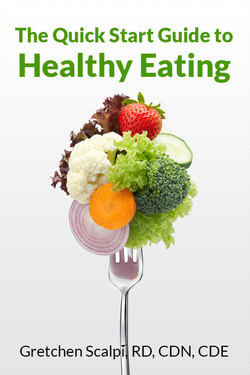Читать книгу The Quick Start Guide to Healthy Eating - Gretchen Scalpi RD CDN CDE - Страница 10
На сайте Литреса книга снята с продажи.
You shouldn’t drink milk because it is not meant for humans… it is meant for cows
ОглавлениеThis is not true. Most of us can digest cow’s milk without any ill effect. One exception to this is the newborn or young infant, who should not drink cow’s milk. Perhaps this is where the idea comes from. You should not feed a newborn infant cow’s milk because it contains a very high percentage of protein; much more than human milk. The infant has an immature digestive tract and kidney function that does not handle high concentrations of protein well.
This remains the case until the infant reaches the age of approximately two years old. Infants must receive either human breast milk or baby formula until that time. Baby formula is made to mimic the composition of human milk, which is higher in carbohydrate and fat, and lower in protein. As the child gets older, most are able to handle cow’s milk and it is a perfectly acceptable food unless they have a food allergy or food sensitivity.
You can increase a child’s risk of a milk allergy by feeding them cow’s milk at an early age. The same holds true for other foods for which infants are not physiologically ready to eat. Early feeding of cow’s milk and other foods may predispose that individual to an allergy as they're growing up. Infants do not need a wide range of foods until they are at least 4 to 6 months old, at which time other foods can be introduced. They do very well on breast milk or formula for the first 4 to 6 months of life.
